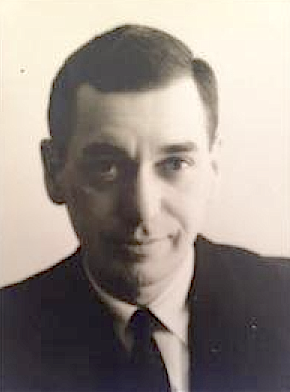A Master from the New Bauhaus Revealed
Little is known about Fredericksen’s youth except that he was born in Norway where he received his early training in the fine arts. The nineteen-year-old was certainly aware when in 1933 the Nazis shut down the innovative design school, the Bauhaus, in Berlin as they had earlier in Dessau. He was also aware that many of the school’s masters had immigrated to America, including László Moholy-Nagy [1895–1946] who in 1937 founded the New Bauhaus in Chicago (becoming the Institute of Design). Fredericksen immigrated to Chicago at least by 1943, in the midst of World War II. He brought with him a foundation of design experience because that year he was considered a professional when he was accepted among a select group for a course at the Institute of Design in “Civilian Camouflage,” taught by György Kepes [1906–2001]. The concept of practical arts for the war effort was reinforced by the nearby Art Institute of Chicago Art, which established an Art in War Gallery featuring an exhibition in 1943 entitled “Camouflage for Civilian Defense,” curated by the Museum of Modern Art in New York.
After the war, Fredericksen sought to complete his studies in design and the fine arts. In the Spring of 1946 he returned to New Bauhaus and showed his portfolio to Moholy-Nagy. He was accepted on the spot. With Moholy-Nagy as his most significant mentor, Fredericksen created a series of remarkable photograms and constructivist collages. Fredericksen was also fortunate to study under another giant of modernism, the avant-garde sculptor Alexander Archipenko [1887–1964]. These pioneers brought with them courses from the original Bauhaus such as Paul Klee’s course in color analysis and Kandinsky’s approach to abstraction.
After Moholy-Nagy died later that year Fredericksen studied photography under Kepes and painting and color theory under the abstract artist Werner Drewes [1899–1995]. He also studied under three peers: painting with Emerson Woellfer [1914–2003]; and, photography with Art Siegel [1913–1979] and Harry Callahan [1912–1999].
In 1947 jurors of the Annual Exhibition of Artists of Chicago and Vicinity at the Art Institute of Chicago accepted a work by Fredericksen. In 1948, after more than two years at the Bauhaus, he left to pursue a career in commercial graphic design. He was after all, thirty-four, and like the best artists of the Bauhaus he was among the avant-garde boldly applying clean modernist shapes and lines to American advertising, magazines, and packaging. For the next ten years he enjoyed success, particularly with major pharmaceutical companies such as Parke-Davis (now Pfizer) and Schering (now Merck) and McNeil (now Johnson & Johnson). He also became very friendly with Herbert Bayer [1900–1885] the former art director of Vogue in Berlin (and former teacher at the Bauhaus in Germany) who became famous for his innovative commercial designs.
In 1958, at age forty-four, Fredericksen moved to Chester, Massachusetts, and for the next five decades would lead a double life. While he continued to accept graphic design commissions he became resolute and prolific in pursuing his privately created collages and paintings — all of which continued to reflect the influence of Moholy-Nagy and the New Bauhaus. He was also an eclectic acquisitor of objects and operated an antiques business he called the Chester Gallery.
Fredericksen was one of those highly accomplished artists of the New Bauhaus who, despite his early role in American modernism — and his continued great imagination and prolific output — chose not to actively promote his art. Records show that he only occasionally exhibited locally and regionally — at the Jasper Rand Art Museum in nearby Westfield, Massachusetts and at some of the annual “Art of the Northeast” juried exhibitions at the Silvermine Arts Center in Connecticut. He even exhibited at the André Emmerich Gallery in New York. But for the most part he remained more content to live in a quiet little New England town and pursue his art in a private way without any care of self-promotion. Indeed, he rarely sold his works, preferring instead to surround himself with them, as would a hoarder. As a result, when he died in 2010 he left behind a large and extraordinary collection into which art historians are just beginning to delve.
Peter Hastings Falk, 2015
-
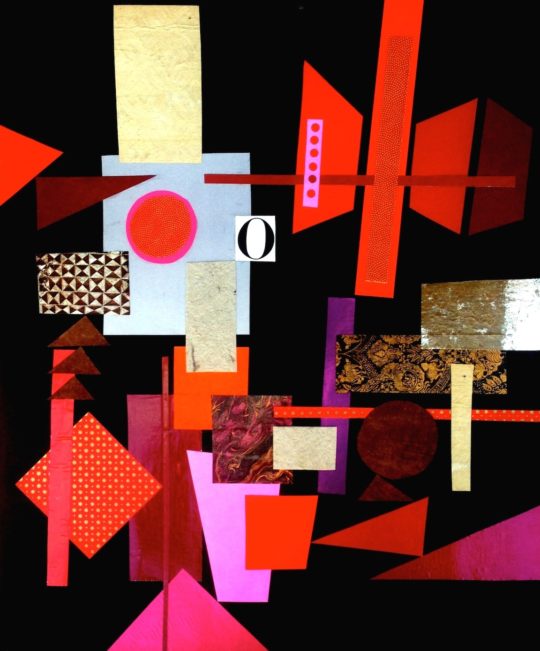 DETAILS
DETAILSUntitled (Abstract composition “O”), 1992
17 x 20 inches (43.18 x 50.8 cm) -
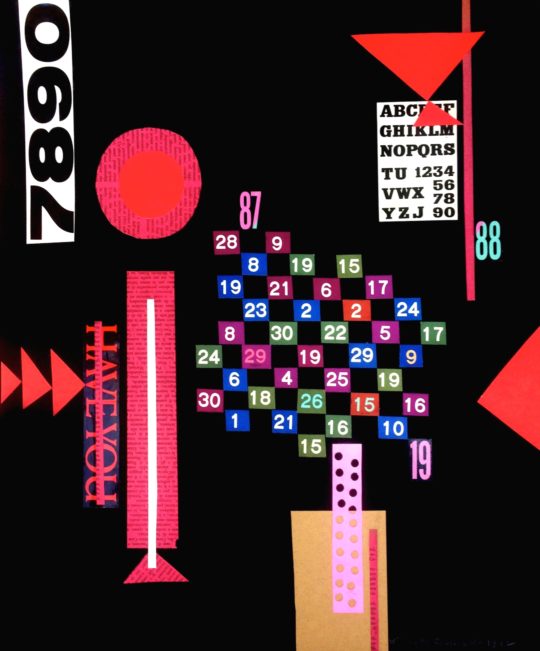 DETAILS
DETAILSUntitled (Abstract composition, 7890), 1992
17 x 20 inches (43.18 x 50.8 cm) -
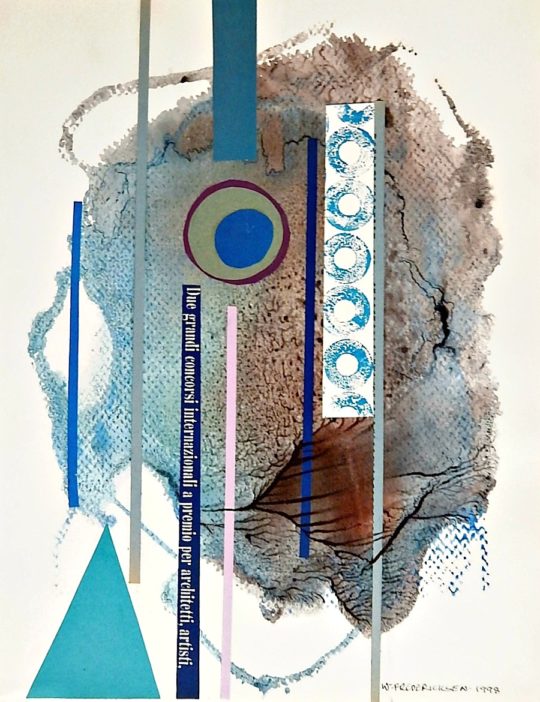 DETAILS
DETAILSUntitled (Abstract composition, Concorsi), 1998
12 x 15 inches (30.48 x 38.1 cm) -
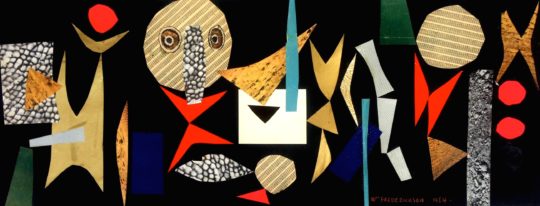 DETAILS
DETAILSUntitled (Abstract composition, eyes), 1954
24 x 9.5 inches (60.96 x 24.13 cm) -
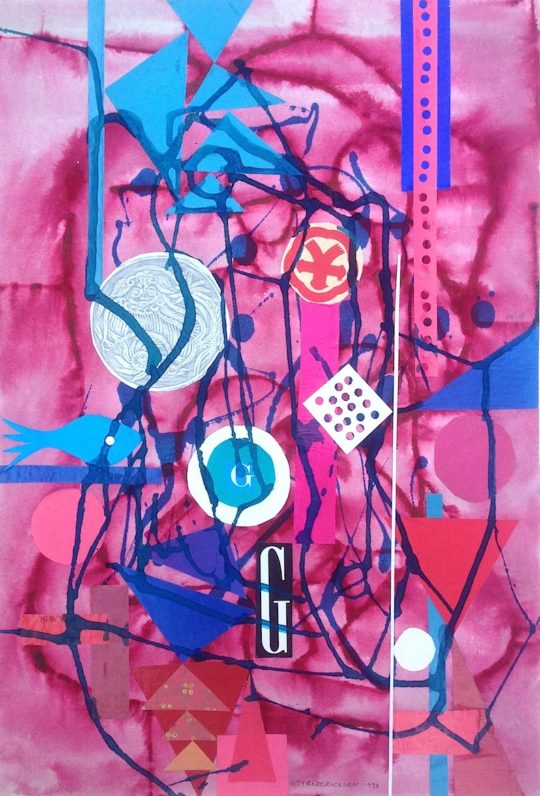 DETAILS
DETAILSUntitled (Abstract composition, G spot), 1990
15.5 x 23 inches (39.37 x 58.42 cm) -
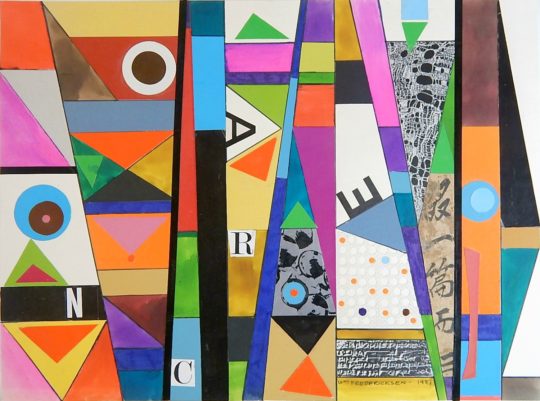 DETAILS
DETAILSUntitled (Abstract composition, Nacre), 1981
13.5 x 18 inches (34.29 x 45.72 cm) -
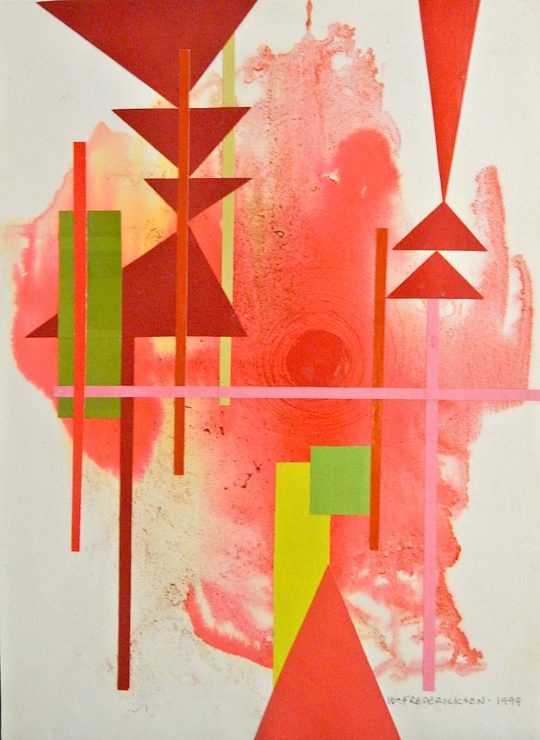 DETAILS
DETAILSUntitled (Abstract composition, Red Center), 1999
11 x 14.5 inches (27.94 x 36.83 cm) -
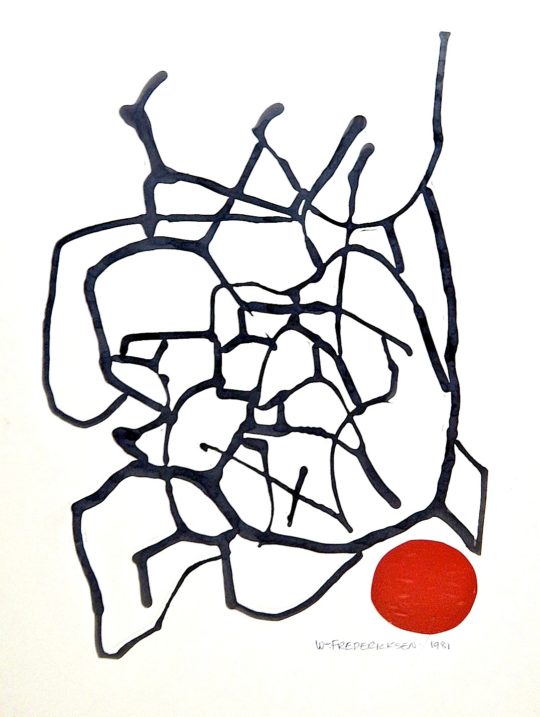 DETAILS
DETAILSUntitled (Abstract composition, Red Spot), 1981
14.5 x 19.5 inches (36.83 x 49.53 cm) -
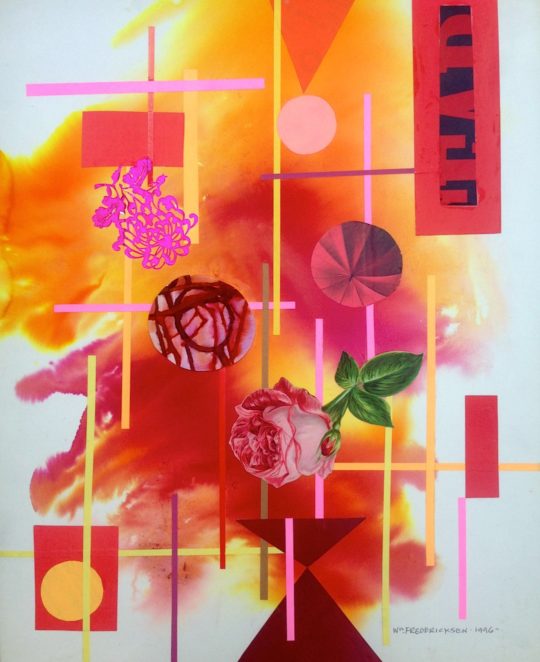 DETAILS
DETAILSUntitled (Abstract composition, Roses), 1996
18 x 22 inches (45.72 x 55.88 cm) -
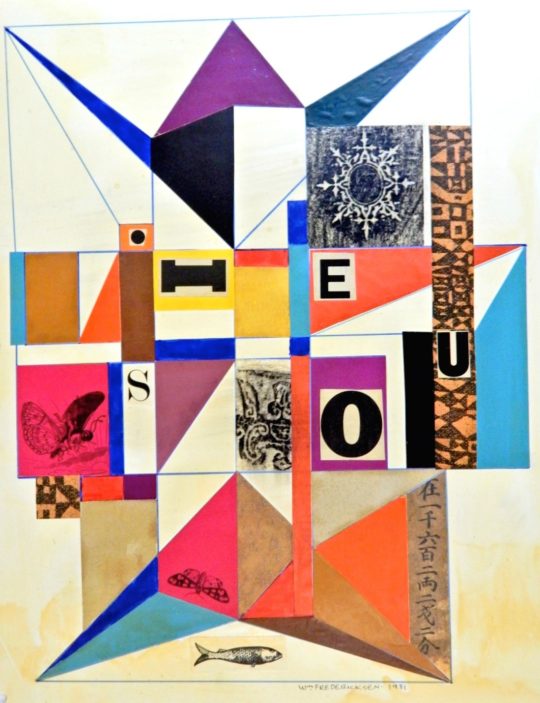 DETAILS
DETAILSUntitled (Abstract composition, SIEOU), 1981
14 x 18 inches (35.56 x 45.72 cm) -
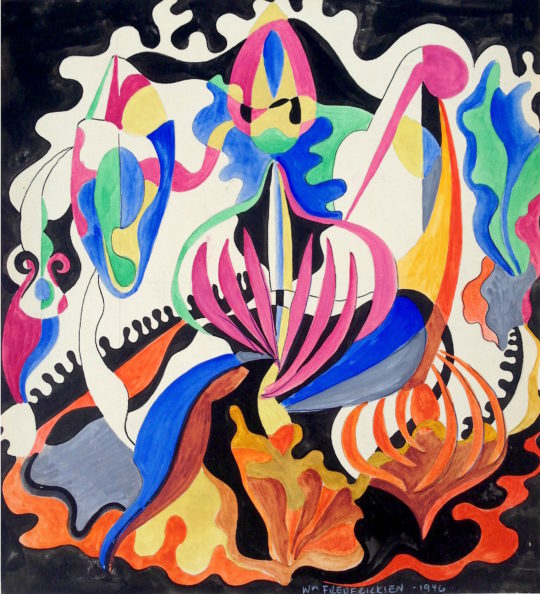 DETAILS
DETAILSUntitled (Biomorphic composition), 1946
9.5 x 10.5 inches (24.13 x 26.67 cm) -
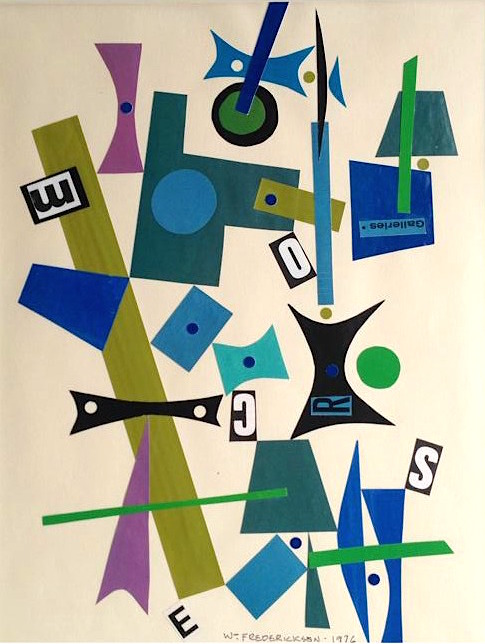 DETAILS
DETAILSUntitled (Constructivist collage – Galleries), 1976
10.5 x 13.5 inches (26.67 x 34.29 cm) -
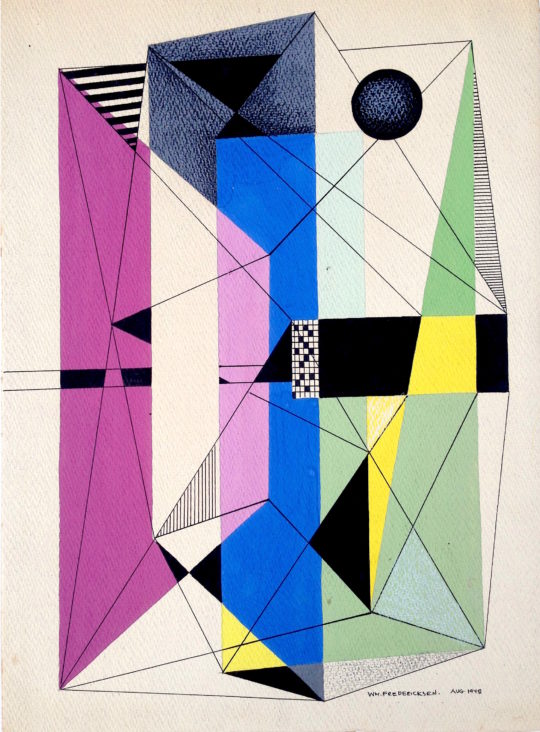 DETAILS
DETAILSUntitled (Constructivist collage – Museum), 1948
10.5 x 13.5 inches (26.67 x 34.29 cm) -
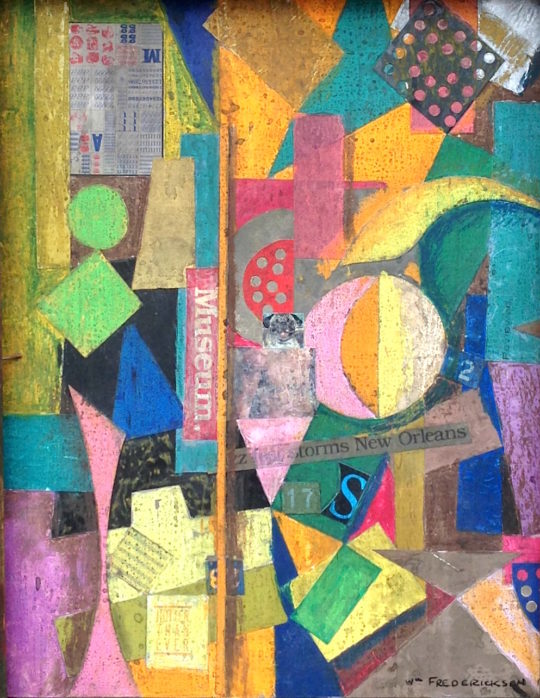 DETAILS
DETAILSUntitled (Constructivist collage – Museum), 1990
14.5 x 17 inches (36.83 x 43.18 cm) -
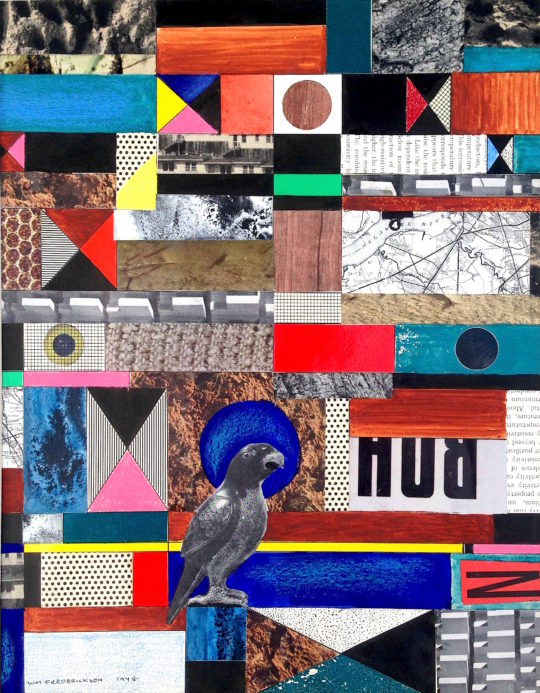 DETAILS
DETAILSUntitled (Constructivist collage – Parrot), 1948
10.5 x 13.5 inches (26.67 x 34.29 cm) -
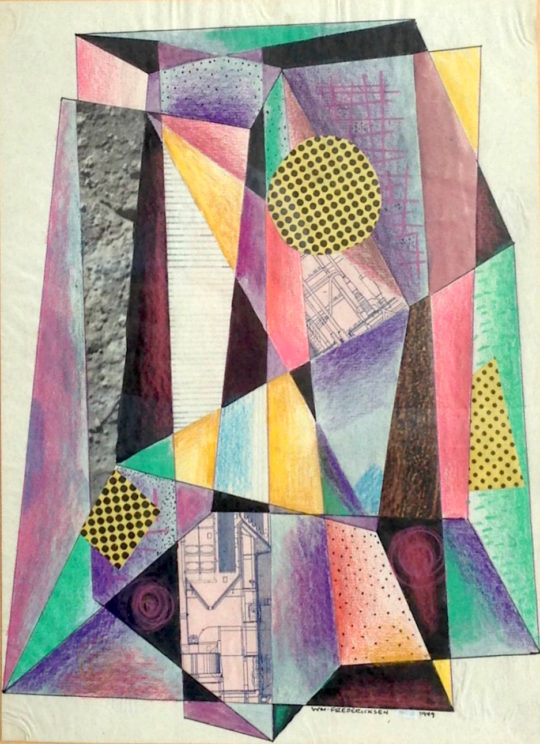 DETAILS
DETAILSUntitled (Constructivist collage – Prisms), 1949
7.5 x 10.5 inches (19.05 x 26.67 cm) -
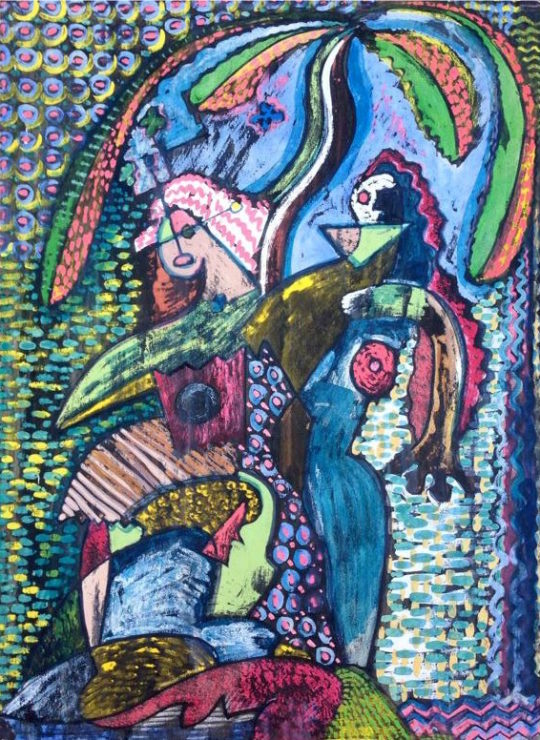 DETAILS
DETAILSUntitled (Figures and biomorphic forms), 1946
10.5 x 16.5 inches (26.67 x 41.91 cm)
No Press releases found.
No News found.
No Events Found.
